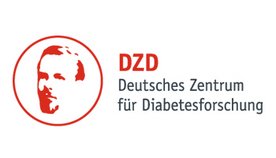
Dr. rer. nat. Mauricio Berriel Diaz
Deputy Director, Institute for Diabetes & Cancer, Head of Division Metabolism and Cancer"A better understanding of the diverse interconnections between energy metabolism and cancer will enable us to develop novel treatments against cancer cachexia, the devastating wasting syndrome, to counteract metabolism-driven cancer risk and to target tumor metabolism for anti-cancer therapy."
"A better understanding of the diverse interconnections between energy metabolism and cancer will enable us to develop novel treatments against cancer cachexia, the devastating wasting syndrome, to counteract metabolism-driven cancer risk and to target tumor metabolism for anti-cancer therapy."
Academic Career and Research Areas
Mauricio studied biology at the University of Marburg (Germany), where he also did his PhD in Animal Physiology in 2004. His doctoral studies with Gerhard Heldmaier and Martin Klingenspor were already addressing molecular mechanisms involved in the regulation of energy metabolism, specifically during torpor, a hibernation-like state of extreme hypometabolism. In 2005, he joined as a postdoc the junior group lead by Stephan Herzig at the German Cancer Research Center (DKFZ) in Heidelberg.
Together with Stephan, he developed a research program linking metabolic disease mechanisms to different aspects of cancer. One research focus since then has been cancer cachexia, the devastating wasting (weight loss) syndrome associated with different tumor diseases. Cancer cachexia seriously impairs quality of life, causing debilitating fatigue and loss of physical strength, and its consequences include increased chemotherapy toxicity, complications from cancer surgery and mortality. Mauricio contributed to pioneering studies, which, beyond the traditional focus on skeletal muscle loss, expanded the view on cachexia as a systemic metabolic condition. This included the characterization of the roles of liver and adipose tissue metabolism as well as cardiac atrophy in cancer cachexia. Further high impact contributions addressed different aspect of liver metabolism in the development of metabolic diseases, and the elucidation of a novel mechanism contributing to obesity-driven breast cancer progression.
Since his move to Helmholtz Munich in 2015, Mauricio intensified his translational research activities towards early diagnosis of cachexia as well as the development of adjuvant therapies against cancer-induced wasting, aiming at increasing the patient´s quality of life and the therapeutic options against the primary malignancy. In addition, together with his team and collaborators, he is testing novel therapeutic strategies against cancer by exploiting specific aspects of tumor metabolism
Fields of Work and Expertise
Control of Energy Metabolism Cancer Cachexia Adipose TissueTumor Metabolism
Professional Background
Deputy Director & Head of Division at Helmholtz Center Munich
Deputy Division Head at the German Cancer Research Center (DKFZ)
Postdoctoral fellow at the German Cancer Research Center (DKFZ)
Postdoctoral Fellow at the Max-Planck-Institute for Heart and Lung Research
Doctorate (Dr. rer. nat.; PhD) Biology, Philipps-University Marburg, Germany
Honors and Awards
Since 2018 - Associate Editor Journal of Cachexia, Sarcopenia and Muscle (JCSM)
Reviewer for Nature Communications, Molecular Metabolism, EMBO Molecular Medicine, EMBO Reports, Scientific Reports, Carcinogenesis, Oncogene, International Journal of Cancer, FEBS letters, American Journal of Physiology
2015 - Referee for the Swiss National Science Foundation Sinergia Program
2003 - Poster Prize: The international Society for Biological Calorimetry: XIIIth Conference Energetics of Adaptation and Development: From Molecular Mechanisms to Clinical Practice, Würzburg.

Highlight Publications
More on PubMedJ Cachexia Sarcopenia Muscle
Trends Cancer
J Cachexia Sarcopenia Muscle
High levels of modified ceramides are a defining feature of murine and human cancer cachexia.







